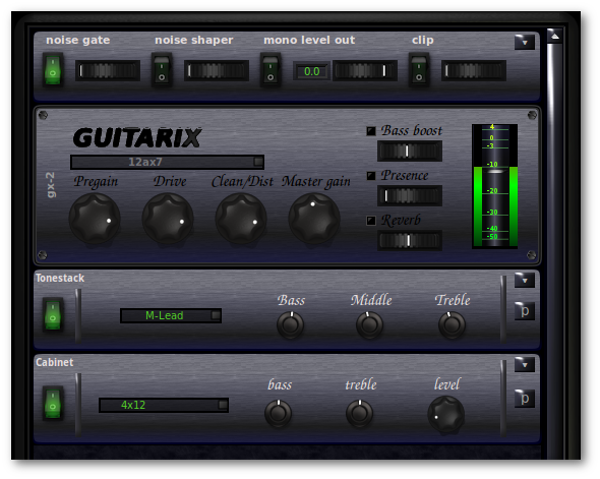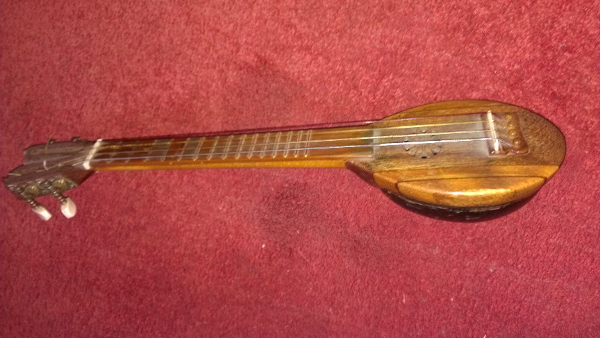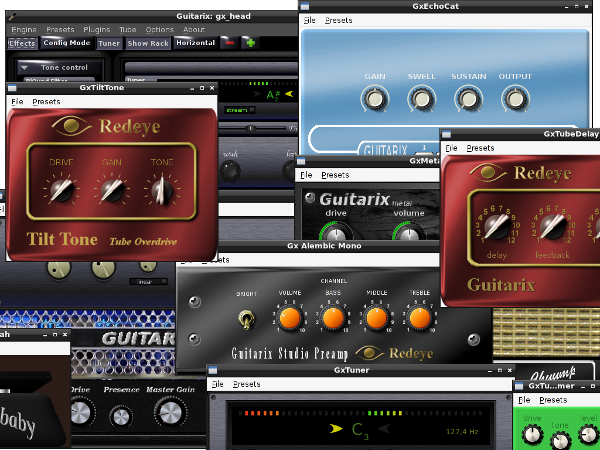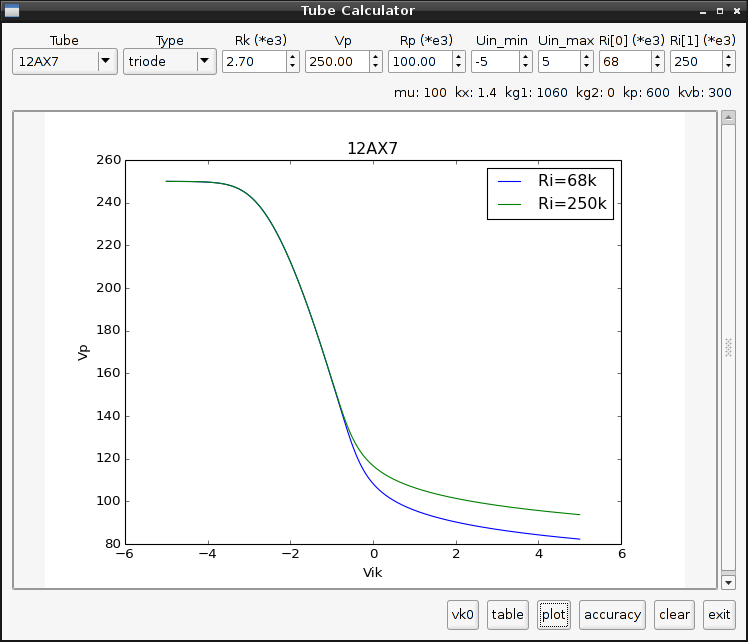
In this interview we talk to Hermann Meyer, founder and lead developer of Guitarix, a modular, virtual amplifier for Linux.

Hi Hermann. Thank you for taking the time to do this interview. Where do you live, and what do you do for a living?
Hi, I live in Germany, were I have an old courtyard house in a small town near Hannover.
I’m working as a freelancer event technician, therefore I travel around Europe a lot.
 Hermann hard at work
Hermann hard at workWhat are your musical interests?
I love Hard Rock/Jazz Rock music.
I’ve build a couple of instruments, like a harp, a fiddle, a banjo, flutes and my coculele, which I still prefer to play today. It’s a 4 string ukulele like instrument with a coconut as it's body.
 Hermann's self built coculele
Hermann's self built coculele
Tell us a bit about the history of Guitarix
I founded the Guitarix project on July 23rd, 2008 on a
request made by
Linuxmusicians user funkmuscle. At this time I had just started to play around with
faust. I still hadn’t really any idea about C/C++, or DSP programming at all. But others steps helped towards bringing the project on the road.
First was Sebastian Moors from Hydrogen, who set up a SVN repository at
Sourceforge.
Then there was James Warden, who did an overhaul of the source code and started to structure Guitarix in clean C++ classes.
Then came Pete Shorthose, who contributed the knob images.
In 2010 Andreas Degert joined the party. He has made Guitarix to what it is today. A rock solid amp simulation with additional effect-racks.
The Guitarix development team has grown to 15 members, where there are usually 4 active members.
Full list of contibutors are - Andreas Degert, brummer, Bruno Gola, drgreenthumb, kickback, Luis Fagundes, stan, Steve, John Smith, Gianfranco Ceccolini, Lucas Takejame, André, Venkatesh, thorgal, Hartmut Noack
Are you involved in any other FLOSS projects other than Guitarix?
I have some small side projects, but Guitarix is my main child.
Currently I’m interested in the
MOD, which I supported in the last year by developing the Guitarix
LV2 plugins, mainly for the MOD device. I guess most people don’t know that without the MOD, I probably wouldn’t have ported the Guitarix amps and plugins to the LV2 format.
Gianfranco Ceccolini from the MOD project contacted me and asked for help by porting the Guitarix amps to the LV2 standard, because he needed them for his device which he planned to build, the MOD.
During this cycle I developed an LV2 framework for Guitarix which allows us to port any gx-plugin to the LV2 format on the fly.

Some of Guitarix's LV2 plugins, AKA gx-plugins
For people who don't understand modeling, what is involved?
For modeling tubes we first needed to write the tools. It involved a lot of research. Then decisions needed to be made, to balance the modeling and CPU usage.
For modeling complex circuits, far more work is needed. In this area, we are just at the beginning of the journey.
One of our goals is to be able to generate realtime capable code from circuit schematic files. The JCM800 preamp plugin is developed with
this toolkit. This is mainly the work of Andreas Degert.
You can find all of these tools in our source tree, in the /tools directory.
 Interface for Guitarix's tube calculator script
Interface for Guitarix's tube calculator script
What is your hardware set up?
I use a really old computer, nothing powerful at all.
| System |
Kernel 3.14.0-rt1 i686 |
| Desktop |
LXDE |
| Distro |
Siduction 12.1.1 Desperado Reloaded |
| Machine |
HP workstation |
| Mobo |
HP WMTA System Board |
| CPU |
Single core Intel Pentium 4 CPU |
| Graphics Card |
NVIDIA GeForce FX 5200 |
What does FLOSS mean to you?
To me it means, free knowledge sharing.
Why and when did you change to using FLOSS software?
Several years ago, I threw my PC out of the window, because Windows didn’t allow me to configure my PC the way I wanted. For many years I didn’t use computers at all, then a neighbor of mine gave me a Linux PC, and told me that this will attract me for sure. He was right!
What for you is the most important aspect of Linux audio?
The free source code. That is what gives me the freedom to use it the way I like. This allows me to understand the math behind the scene.
What do you feel is currently lacking in Linux audio?
Uh, I don’t miss anything.
What is your favorite FLOSS plugin?
I like the MDA plugs, as well the
CALF suite, it's exciting.
What changes, if any, would you like to see within the Linux Audio community?
I often miss respect for each other. Some people in the Linux Audio community tend to be self centered and criticism comes up, which all to often isn’t constructive.
What advise would you give to a new Linux Audio user?







